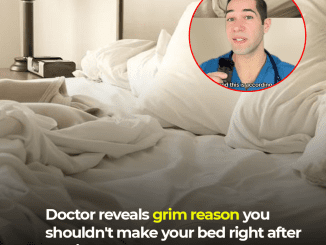Why You Drool When You Sleep and How You Can Stop It
Drooling while you sleep is a common phenomenon that many of us experience from time to time. However, if you find yourself waking up to a wet pillow regularly, it could indicate an underlying issue. Let’s dive into the reasons behind drooling and explore some effective ways to reduce or even stop it altogether.

Understanding the Causes of Drooling
When we sleep, our facial muscles and swallowing reflexes relax significantly. This relaxation can lead to saliva accumulating in the mouth, especially if your mouth is slightly open during sleep. As a result, you might wake up to find that your pillow is damp and uncomfortable.
But what if drooling becomes excessive? This condition, known as hypersalivation, might be a sign of a neurological disorder or simply the result of nasal congestion. Individuals with certain health issues, like a stroke, may also experience increased drooling.
How to Reduce or Stop Drooling While Sleeping
If you’re tired of waking up to a wet pillow, here are some practical tips to help you manage and reduce drooling at night.
Clear Your Sinuses
One common culprit behind drooling is nasal congestion, which forces you to breathe through your mouth. Here are some effective strategies to clear your sinuses:
- Hot Showers: Taking a hot shower can help open up your nasal passages, allowing you to breathe normally at night.
- Essential Oils: Using eucalyptus oil can promote better airflow and enhance your sleep quality.
- Nasal Products: Consider using products like Vick’s Vaporub to unclog your nose and support smoother breathing.
Make sure to address any nasal infections promptly to prevent complications, such as chronic congestion.
Change Your Sleeping Position
Believe it or not, your sleeping position can significantly affect drooling. Sleeping on your back tends to keep saliva in your mouth, while side or stomach sleeping may result in drooling. If you struggle to maintain one position throughout the night, try tucking yourself in. This can help stabilize your body and keep you from rolling over.
Check for Sleep Apnea
Sleep apnea is a serious condition that interrupts your breathing during sleep, leading to frequent awakenings and daytime fatigue. Snoring and drooling are common indicators of sleep apnea. If you suspect you have this disorder, consult a healthcare professional. Factors like smoking can increase your risk, so addressing lifestyle choices can also help.

Lose Extra Weight
Excess weight can contribute to sleep apnea and other sleep-related issues. In fact, a significant percentage of individuals with sleep apnea are overweight. Losing weight can improve your overall sleep quality and potentially reduce drooling.
Use Specialized Devices
If drooling continues to be a problem, consider consulting a doctor about dental appliances. These devices can help improve mouth closure and swallowing, which may lead to a more restful night’s sleep.

Review Your Medications
Some medications, particularly certain antibiotics, can cause hypersalivation as a side effect. If you suspect your medication is the culprit, discuss this with your doctor, who may adjust your prescription or suggest alternatives.
Keep Your Head Elevated

Elevating your head while you sleep can help minimize drooling. Fluffing your pillow or using an extra pillow can make a significant difference in how much saliva collects in your mouth overnight.
Consider Surgical Options
In some cases, surgical intervention may be necessary, especially if there are serious neurological issues at play. Before pursuing surgery, doctors typically explore non-invasive methods. If other treatments fail, surgical options may be considered.

Conclusion
Drooling during sleep is a common issue that can often be managed with lifestyle changes and medical advice. By understanding the underlying causes and implementing these strategies, you can wake up feeling refreshed and dry. Have you experienced drooling while you sleep? Which tips do you think you’ll try? Share your thoughts in the comments!


